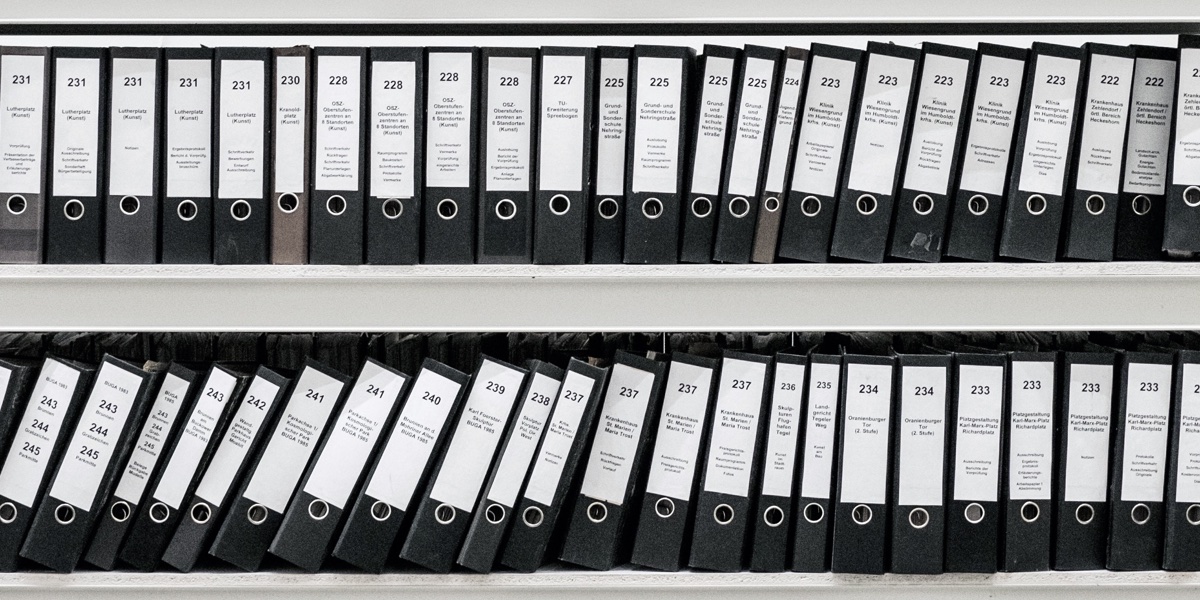Storing paper documents can be an easy process, but if you don’t do it correctly, it could mean difficult access and deteriorating pages. It’s better to store papers correctly the first time around. There are a number of things you need to keep in mind when storing documents:
Acid-free containers
Paper storage materials should be lignin-free. This is because lignin, a natural component of plant cell walls, reacts with light and heat to form acids. Acid-free materials typically contain less than 1% lignin. When choosing acid-free materials, choose those that are made of wood-based paper or that are buffered by a substance native to trees.
When choosing an acid-free container, be sure to choose a place with minimal light and humidity. Keep in mind that prolonged exposure to light and moisture will result in creases and rips in your paper documents. If your records are fragile, use buffered mats and acid-free folders to protect them. Don’t store boxes of documents directly on the floor. They should be packed tightly and clearly labeled for easy identification.
Acid-free file folders
If you’re looking to store your paper documents for years without worrying about them becoming damaged, here are some tips: Make sure your documents are stacked in separate, acid-free file folders. Avoid placing them in hanging file cabinets or on top of other items that will cause them to deteriorate. The most acid-free way to store paper documents is to put them into a box that has been lined with acid-free paper.
To test a document’s acid content, you can store a sample sheet of it in an acid-free folder. You can use archival boxes, which are made for eight-inch-by-11-inch sheets. If you’re using hanging folders, you can use plastic bins specifically designed for folders. Acid-free file folders also prevent stains and yellowing.
Avoiding high humidity
To avoid permanently damaging your paper documents, you need to maintain the right humidity and temperature for safe storage. You want to store them in a climate-controlled environment between 68 and 76 degrees Fahrenheit, and away from direct sunlight. A dehumidifier will help maintain the proper humidity level. Ideally, you should store your documents in a dry room, but if you are unable to control the humidity, you can install one in your room.
While a high level of humidity can cause mildew, high humidity can ruin your documents. In addition, high humidity can cause them to deteriorate faster. It may also encourage insects and mold to grow on your documents. To prevent this from happening, you can store your paper documents inside your home or in a climate-controlled facility. Make sure to research the ideal humidity level for storing your documents. You should know the recommended humidity level for each type of paper.
Photocopying
Many of us have to keep paper documents, including your mark sheet, property papers, loan papers, and any other kind of receipt, bill, or bank statement. Properly storing and handling these documents is essential to keeping them in pristine condition. Here are a few tips for preserving paper documents. Use acid-free, water-resistant paper between sheets to keep them from deteriorating or discoloring. Store them in a dark, dry area. Avoid storing them in a damp place, since this will cause moulds to grow on them, leaving brown stains on your paper.
To prevent creases and rips, store your documents in an acid-free folder or box. Avoid using staples or pins, as these materials are made of iron. Iron reacts with air and forms rust. This rust can damage your documents. Always use white editing gloves when handling important documents, as these will prevent damaging oils on them. Scanned documents are best preserved. They are easier to store than photocopies.
Shredding
While there are many benefits to paperless technology, it’s not without its flaws. Paper documents still exist and are growing in volume every year. Additionally, more than half of all documents contain information that needs to be shredded. It’s also time-consuming to review every document. That means mistakes can happen. That’s where a professional shredding service comes in. These experts are familiar with paper destruction and can handle shredding projects of any size and complexity.
A professional document destruction company can shred paper documents for long-term storage in a more secure environment than a self-storage facility. These facilities regulate both temperature and humidity to prevent damage to your documents. They also ensure that sensitive information is not left behind. The security of this service is another benefit of hiring a professional shredding company. In addition to protecting your documents, a professional service can help protect your company’s reputation.

